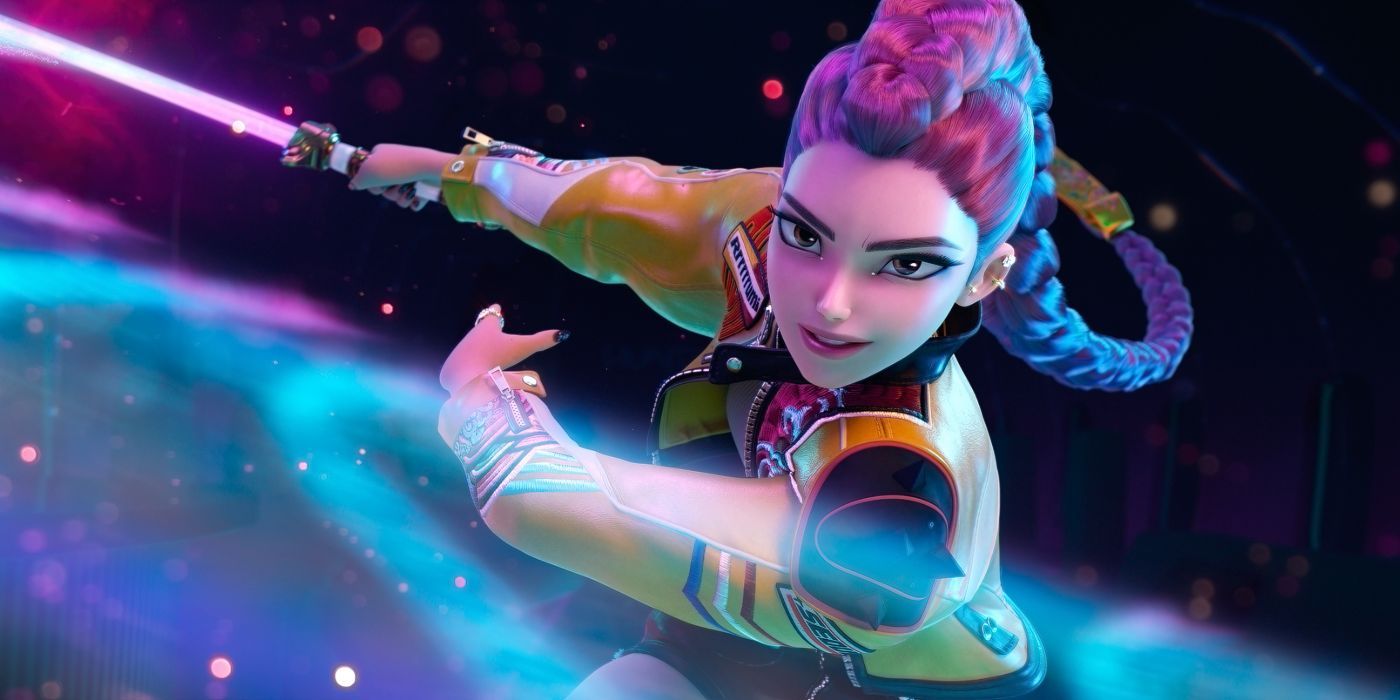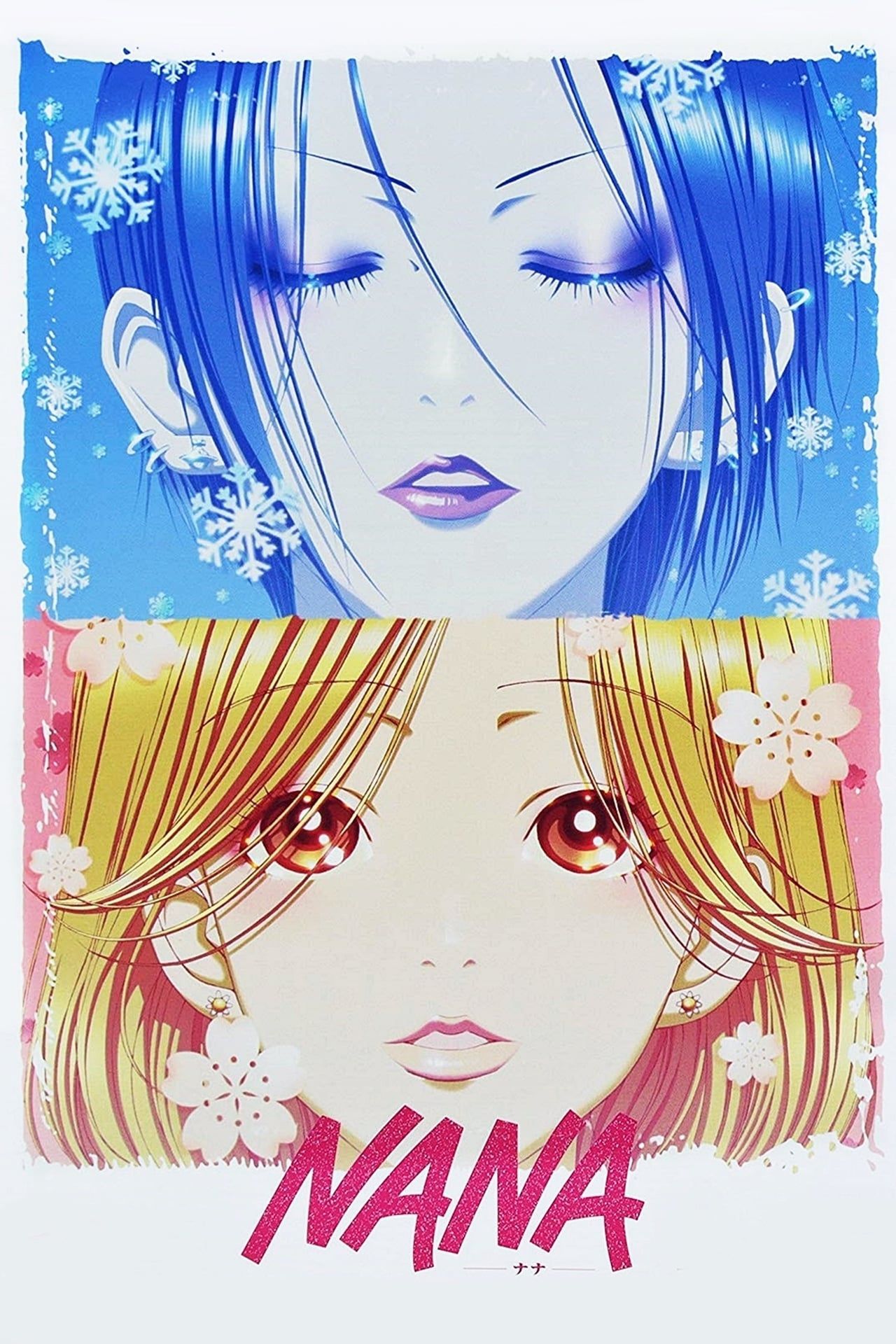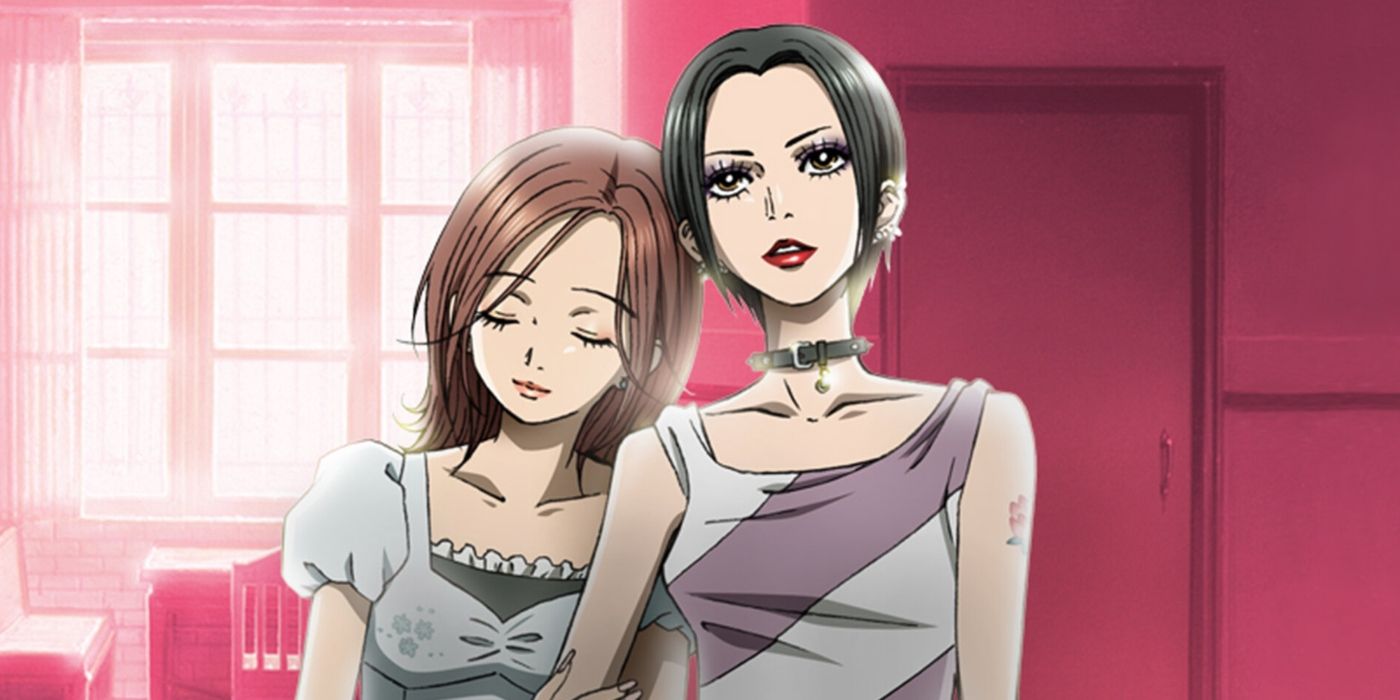Despite the hunters’ best efforts, KPop Demon Hunters has definitely stolen the souls of more than a few new fans this summer. Blowing up on social media because of its deeply empowering story, seamlessly vibrant animation, and chart-topping soundtrack that has actually overtaken real-life K-pop groups, Maggie Kang and Chris Appelhans‘ masterpiece has become Netflix‘s sleeper hit of the season. And, as with all surprise hits, fans are already clamoring for a sequel. Given the long production schedules typically associated with animation, however, it’s unlikely we’ll be seeing Huntrix again for at least a few years. In the meantime, anyone looking for a satisfying follow-up to the shoulder-popping bop can do no better than a timeless classic of the anime genre.
Released in 2006 and adapted from the work of author Ai Yazawa, Nana is an underrated masterpiece that can never be praised enough. It is rightfully regarded as one of the best anime series ever made. A staple of Josei anime (an anime sub-genre catered specifically towards young adult women), Nana‘s story centers around Nana Komatsu (Kelly Sheridan) and Nana Osaki (Rebecca Shoichet), two women who share the same name and move in together after a fated meeting results in a friendship closer than destiny. Though technically left unfinished due to the ongoing health problems of its author, Nana nevertheless contains all the best elements from KPop Demon Hunters, making the series a must-see binge for the film’s newly devoted audience.
‘Nana’ Has Everything a Fan of ‘KPop Demon Hunters’ Could Want
On the surface, Nana may not appear to have all that much in common with Netflix’s latest success story, but if you take a closer look at the series, it’s clear the two properties are a natural fit. Nana‘s art style is far more subdued than the dazzling glamor of KPop Demon Hunters‘ venues and the series lacks any hints of the supernatural, but the broad strokes of Nana‘s story center on the same concerns that make KPop Demon Hunters so impactful. The series also revolves around female friends competing against a band of emotionally damaged rock stars—at least one of whom acts like a demon—in order to make it in a thorny music industry, delivering the same blend of nerve-wracking romantic tension and self-affirming personal expression that should more than satisfy audiences searching for their next fix of something that reminds them of Huntrix.
This satisfaction more than extends to Nana‘s memorable soundtrack. If KPop Demon Hunters has left you craving another source of catchy lyrics, look no further. Nana‘s preferred genre is far from K-pop, opting instead for a punk rock sound that will leave you nostalgic for the late 90s and early 2000s, but the series nonetheless leaves viewers with plenty of deep melodies that perfectly reflect the yearning soul of the series. One in particular to check out is the series’ first opening, “Rose,” as well as some of the songs that accompany the anime’s ending sequences, such as “Starless Night,” both of which reflect the burgeoning competition between Nana O’s band, Blast, and Trapnest, the well-established band headed by Nana O’s exboyfriend, Ren Honjo (Sam Vincent).
Nana’s angsty chemistry with the perpetually brooding Ren should help anyone suffering from Jinu (Ahn Hyo-seop) withdrawal after that moment in the film, but the pair’s relationship is also complicated enough to cast a wide emotional net over Nana‘s main story.In particular, anyone who interpreted Rumi’s (Arden Cho) patterns as a metaphor for closeted queerness in KPop Demon Hunters should be right at home watching Nana unfold, as the story is also infamous as a kind of quasi-yuri, or a story that deeply hints at a romantic connection between its two female leads. As you would expect, the pair’s relationship becomes more than a little messy in an anime where LGBTQ+ concepts aren’t common knowledge, but nevertheless, Nana still manages to explore what it means to unconditionally accept the people in your life.

Related
Netflix’s animated feature is a fantastical ode to everything K-pop.
‘Nana’ Takes a More Mature Look at Making It Big in Music as a Young Woman
Aside from featuring many elements that are similar to the recent Netflix hit, Nana truly distinguishes itself by taking an unflinchingly dark look into the trials of young adulthood. Specifically, the series isn’t afraid to tackle mature themes as Nana O attempts to become a household name and Nana K (who is nicknamed Hachi in the series) embarks on what ultimately amounts to a soul-crushing series of romantic misadventures. Whether it’s Hachi’s first real boyfriend quickly cheating on her or Nana O’s uncompromising independence causing her to spiral into persistent fits of loneliness, what sets Nana apart is the sensitivity it lends to its complex subject matter. At its core, Nana is not a series of simple answers. The boyfriend in question, Shoji (Jeremy From), isn’t characterized as a womanizing jerk and instead remains in love with his new girlfriend throughout the series, and Nana O’s loneliness doesn’t fully abate once she reunites with Ren, resulting in the anime presenting a nuanced, mature glimpse at difficult adult relationships.
The series’ most mature content, however, is reserved for its most antagonistic characters, Takumi Ichinose (Andrew Francis) and Layla (or Reira) Serizawa (Ashleigh Ball). Both members of Trapnest and characters who deserve to be remembered as some of the most hated characters in the history of anime, these musicians offer a dark glimpse at acceptance through the lens of Nana‘s morally grainy aesthetic. In particular, Hachi’s association with Takumi throughout the second half of the series forces the audience to ask whether humans seek the love of others to affirm their own self-hatred or out of a genuine desire to live happily ever after. Likewise, Reira’s downright criminal relationship with Nana O’s youngest bandmate, Shin (David A Kaye), examines the blurry line between affection and transaction, going further in dissecting what it means to be truly acknowledged in a world that hinges upon the art of performing emotions.
These thought-provoking riffs on the theme of acceptance build naturally on the groundwork set by KPop Demon Hunters, making Nana a natural follow-up for the film’s adult viewers. Moreover, with only 47 chapters (50 episodes, if you count recaps) that clock in at a little over 20 minutes each, the series is the perfect weekend binge, and the fact that Studio Madhouse animated the series should reassure any skeptics of its visual quality. Combined with the series’ endearing leads and killer soundtrack, this hidden gem of anime history is the perfect choice for fans of the Netflix hit and an unparalleled viewing experience that will have you singing along until the bitter end.


